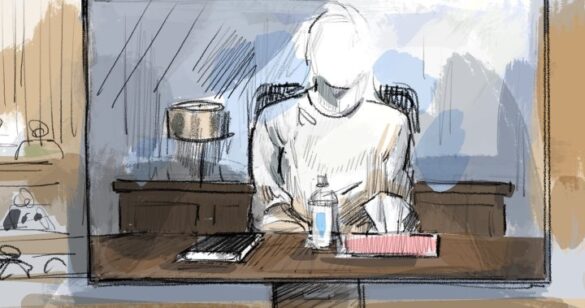A high-profile sexual assault trial involving five former members of Canada’s 2018 world junior hockey team has drawn national attention and sparked a critical examination of hockey culture and support systems for survivors of sexual violence. The accused players—Michael McLeod, Dillon Dubé, Carter Hart, Cal Foote, and Alex Formenton—face allegations stemming from an incident in June 2018 during a Hockey Canada event in London, Ontario. As the case proceeds as a judge-alone trial following the dismissal of the jury amid courtroom disruptions, the proceedings have intensified public discourse on accountability within hockey and the broader necessity for improved survivor support and institutional reforms.
Details of the Allegations and Legal Proceedings
The sexual assault allegations against the five former world junior hockey players center on an incident that reportedly took place in June 2018 at a gathering associated with a Hockey Canada event in London, Ontario. The complainant alleges that she was sexually assaulted during this event, prompting a criminal investigation that escalated into formal charges against the accused athletes.
Initially, the trial was set to be conducted before a jury; however, due to repeated disruptions in the courtroom, the presiding judge dismissed the jury and elected to continue with a judge-alone trial. This decision reflects the court’s commitment to maintaining order and ensuring a fair trial process despite heightened public and media interest.
Public and Institutional Response
The high-profile nature of the case has led to widespread media coverage across Canada and internationally, drawing considerable attention to issues of sexual violence within the hockey community. Various stakeholders, including advocacy groups and survivors’ organizations, have expressed concern about the culture in hockey organizations that may contribute to an environment where such incidents occur.
Hockey Canada and other associated bodies have come under scrutiny regarding their handling of sexual misconduct allegations and the adequacy of their support systems for survivors. In response, Hockey Canada has pledged to review and improve its policies on misconduct prevention, reporting mechanisms, and survivor assistance programs.
Impact on Survivor Support and Calls for Reform
The trial has catalyzed a national dialogue about the effectiveness of existing support structures for survivors of sexual violence in sports environments. Advocates emphasize the need for comprehensive reforms that include:
- Enhanced education and training for athletes and staff on consent and respectful conduct.
- Transparent and accessible reporting channels that protect survivor privacy and safety.
- Independent oversight and accountability measures within sports organizations.
- Improved mental health and counseling services tailored to survivors’ needs.
Experts argue that these reforms are essential not only to prevent future incidents but also to foster a culture of respect and accountability within hockey and other competitive sports.
Broader Cultural Implications
The case has ignited broader conversations about the intersection of sports culture, masculinity, and sexual violence. Analysts and commentators suggest that addressing underlying attitudes and behaviors in competitive sports environments is critical to effecting systemic change. Efforts to engage players, coaches, and governing bodies in open dialogue and education are viewed as vital components of this cultural shift.
Ongoing Developments and Future Outlook
As the trial continues, court observers and the public await further developments, recognizing that the outcome may have significant implications for legal precedents and institutional policies in sports. Meanwhile, survivor advocacy groups remain active in pushing for sustained attention to the issue beyond the courtroom.
It should be noted that the information presented is subject to change as the trial progresses, and updates will be provided as new details emerge.
Conclusion
The ongoing trial involving former members of Canada’s 2018 world junior hockey team has brought to light critical issues concerning sexual violence, athlete accountability, and institutional responsibility within the hockey community. Beyond the immediate legal proceedings, the case has served as a catalyst for national reflection on the culture of competitive sports and the urgent need for comprehensive reforms to better support survivors. Moving forward, sustained efforts from hockey organizations, advocacy groups, and society at large will be essential to foster safer, more respectful environments and to ensure that justice and support systems are accessible to all affected individuals. As this high-profile case unfolds, its outcomes may influence future policies and cultural attitudes, underscoring the importance of continued vigilance and commitment to change.

